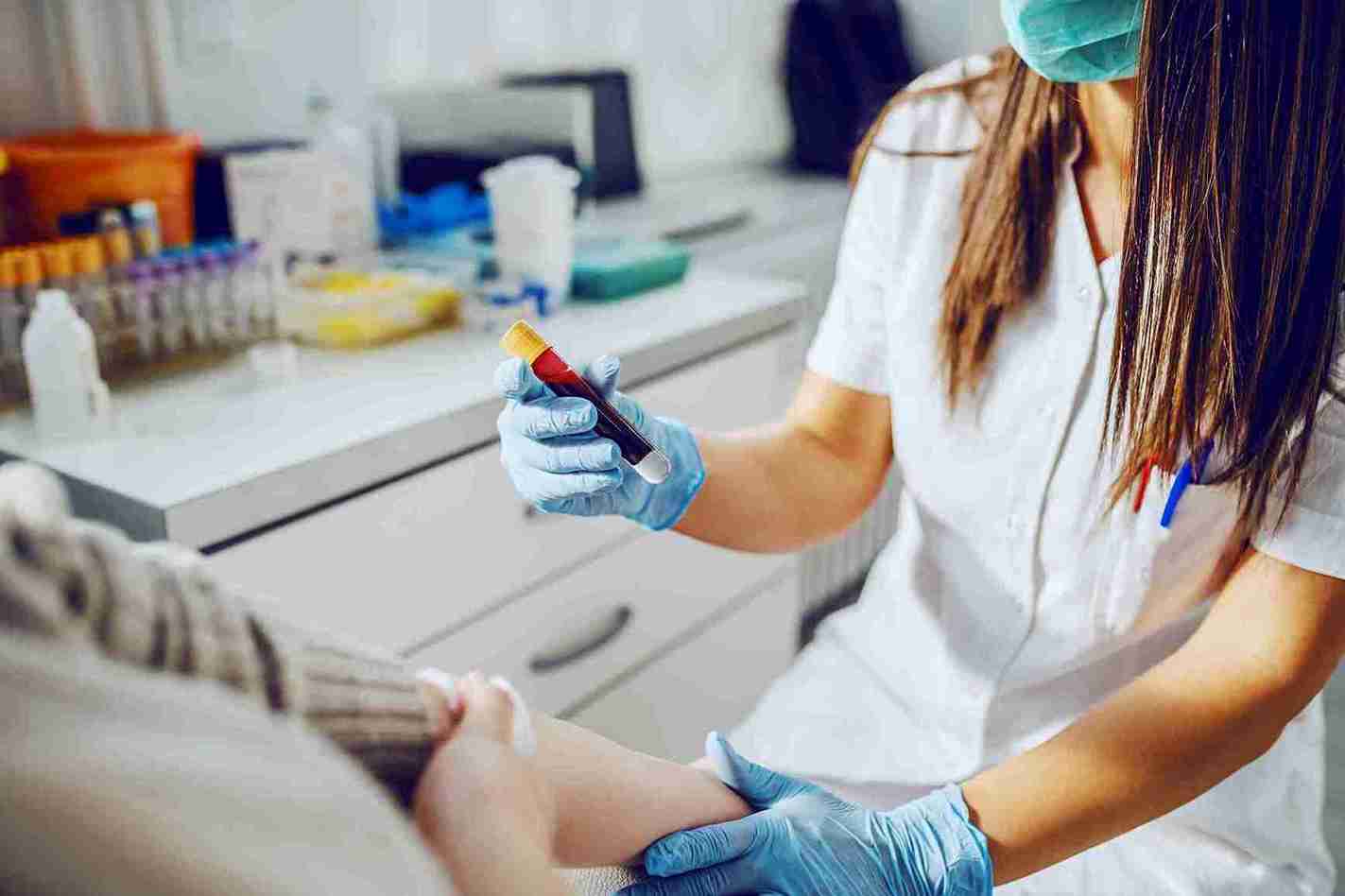
Congratulations on your positive pregnancy test! We know that this can be both an exciting and anxious time, as you need to know what to do next to ensure that both the mother and foetus are safe. Worry not; we are here to walk you through the essential medical tests to help you and your baby stay healthy throughout the journey.

A positive home pregnancy test is an initial indicator of pregnancy. But your doctor will likely recommend a blood test to confirm. These blood tests will help them detect a hormone known as hCG, which is present during pregnancy. There are two of these hormone tests.
Qualitative hCG Test: This test confirms the presence of hCG in the blood, thereby affirming the pregnancy.
Quantitative hCG Test: This test helps measure the exact level of hCG in your blood, which ensures that your pregnancy is progressing.
Blood tests are more sensitive than urine tests, and the ability to detect pregnancy this way is quicker as high levels indicate pregnancy.
When you are around 8-10 weeks old, your doctor will help you schedule an ultrasound. This is the most wonderful moment, as you will get to see your little one for the first time! This scan will help you with the following:
● Confirming the pregnancy is in the right place (inside the uterus)
● Estimate how far along you are
● Check for a heartbeat. (This is a truly special moment for the parents!)
● It helps you to confirm you’re expecting one more baby.
These ultrasounds are safe and provide much-needed reassurance about your baby’s health.
First-trimester screening tests are typically performed between 11 and 14 weeks of pregnancy, as your healthcare provider recommends. These tests include:
Nuchal Translucency (NT) Ultrasound: Measures the fluid at the back of the baby’s neck.
Maternal Blood Tests: Checks for key pregnancy hormones like
Pregnancy-Associated Plasma Protein-A (PAPP-A): Abnormal amounts can suggest an increased risk of genetic conditions.
Human Chorionic Gonadotropin (hCG): Abnormal levels may also be an indicator of possible genetic issues.
Genetic screening can be done as early as 10 weeks if you'd like even more insight. These include:
Non-Invasive Prenatal Testing (NIPT): Analyses the baby’s DNA from your blood to check for genetic conditions.
Carrier Screening: Helps to check if you or your partner carry inherited conditions.
These tests are optional; your doctor will let you know if this is necessary.

Throughout pregnancy, your doctor will check in on you with routine blood tests and urine tests. These will help them monitor the following:
Complete Blood Count (CBC): Tests for anaemia and infections
Blood Type and Rh Factor: Ensures compatibility between you and your baby’s blood type
Thyroid Function Test: Important for the baby’s growth and development.
Urinalysis: Detects infections, protein levels (which can signal preeclampsia), and glucose (which screens for gestational diabetes).
These tests are simple but play a key role in keeping you and your baby healthy.
Your doctor will also check for infections that could affect your baby, including:
Hepatitis B and C Screening: Checks aimed at identifying infection that can be transmitted to the baby.
HIV Screening: Ensures human early intervention so that transmission of the virus can be stopped early on in the infection when the baby has not been infected yet.
Syphilis Test: Detects syphilis, which can give rise to complications if not treated.
Rubella Immunity Test: To ensure protection against German measles.
Toxoplasmosis Screening: Tests for the exposure of a parasite found in raw meat and cat litter.
If anything comes up, your doctor will guide you on how to manage it safely.
Between 24-28 weeks, you’ll take a glucose test to check for gestational diabetes, a temporary condition that can affect pregnancy. If needed, a follow-up test will confirm the results, and your doctor will help you manage your diet and health to keep both you and your baby safe.
Group B Streptococcus (GBS) Test
Between 35-37 weeks, you’ll be tested for GBS, a common bacteria that can be passed to the baby during birth. If positive, antibiotics will be given during labour to protect your little one.
An anatomy scan, also known as a level 2 ultrasound, is carried out between the periods of weeks 18 and 22; this detailed ultrasound checks:
● Baby’s organs, spine, and limbs
● Placenta position
● Amniotic fluid levels
This will help you to see your baby’s tiny fingers and toes; it’s truly magical!
Depending on your health and history, your doctor might suggest extra tests such as:
● Amniocentesis: A diagnostic test run between 15 and 20 weeks undertaken to check for genetic conditions.
● Chorionic Villus Sampling (CVS): Conducted between the 10th and 13th week to analyse the baby’s DNA.
● Foetal Echocardiography: A detailed ultrasound that examines the baby's heart structure and function. This test is typically recommended if there's a family history of heart defects, if you have certain medical conditions like diabetes, or if other screening tests indicate a potential concern.
These risk assessment tests should only be used once the risk profile's specific risk factors are known.
Taking care of yourself is the best way to take care of your baby. Attending prenatal check-ups, eating well, staying active, and resting are all important. Your doctor is here to support you every step of the way, so don’t hesitate to ask questions!

A positive pregnancy test is the beginning of a wonderful journey. These medical tests help ensure everything is on track for a smooth and healthy pregnancy. Your doctor will guide you with warmth and care, helping you navigate each step with confidence and joy.
If you have any concerns, reach out to your doctor; they’re always happy to help! Wishing you a wonderful and healthy pregnancy.

A blood test will ensure confirmation of pregnancy, measure hormone levels, and confirm things are running as expected.

Doctors may perform ultrasounds, blood tests, and urine tests to investigate diabetes, infections, or high blood pressure.

It helps to identify genetic conditions or new birth defects, providing you with important information regarding your baby's health.

The Rh test checks your blood group status. If you are Rh negative and your baby is Rh positive, doctors may treat you to prevent any complications.